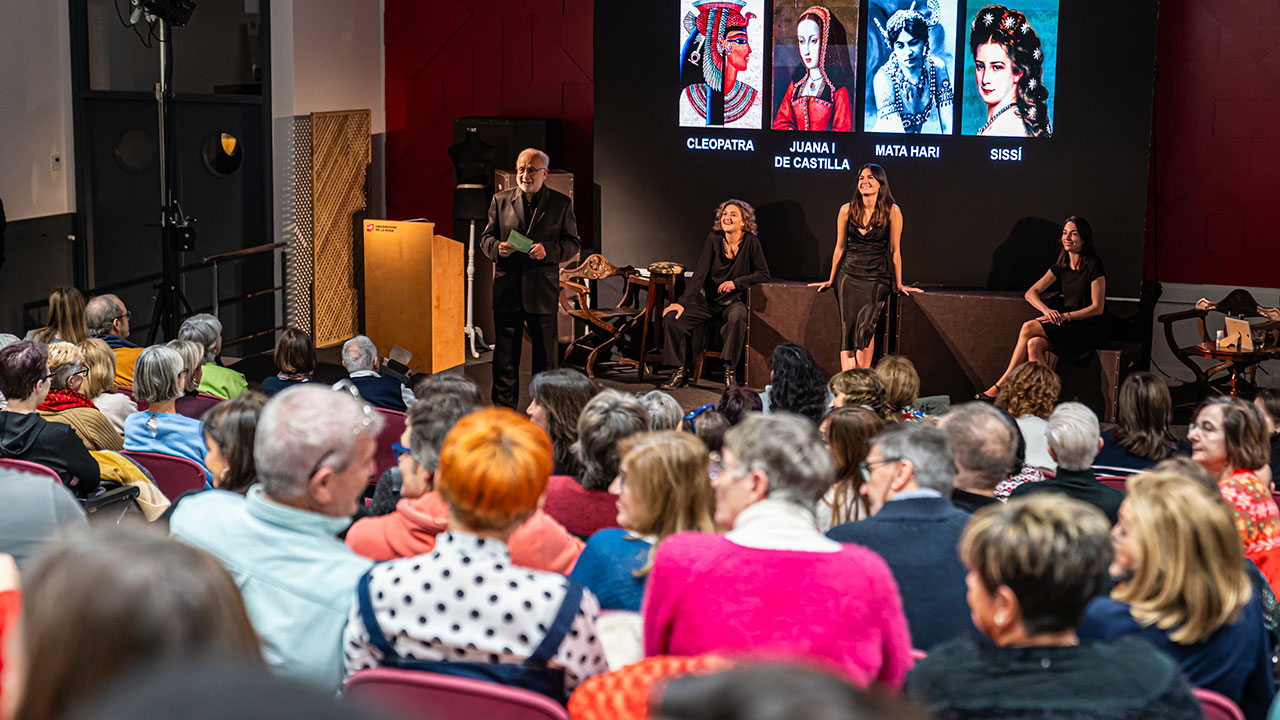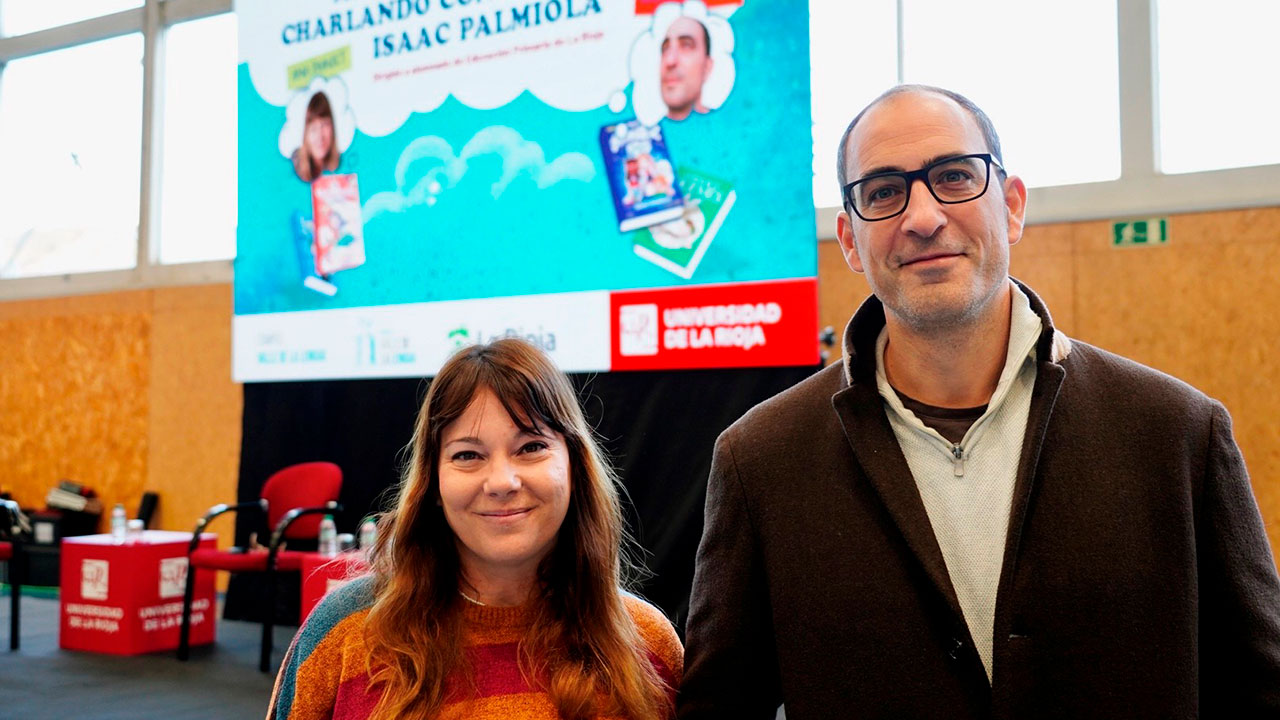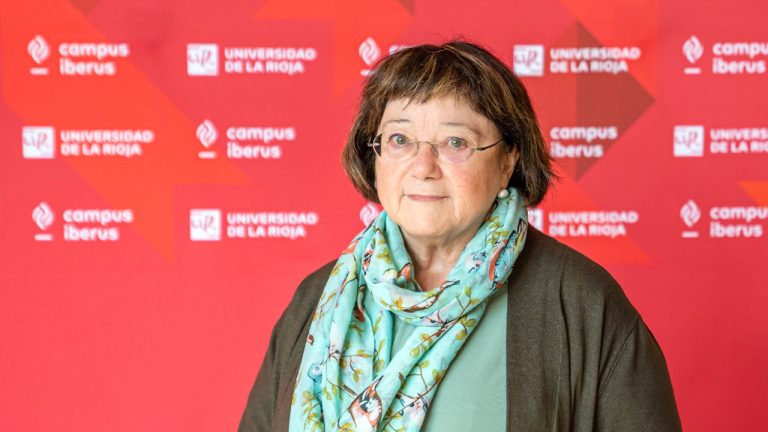Descripción
Seminario de investigación sobre gramática de construcciones en lingüística cognitiva con especial énfasis en sus aplicaciones al lenguaje figurado y al estudio de casos de análisis.
Programa
Jueves, 30 de octubre de 2025
12:00 a 14:30 horas
Some reflections on what Usage-Based Cognitive Construction Grammar(s) can offer for linguistic description and explanation
16:00 a 18:30 horas
Updating the Lexical Constructional Model within the functional-cognitive space
Viernes, 31 de octubre de 2025
9:30 a 12:00 horas
Coercion and figurative language
16:00 a 18:30 horas
Case study: “Coercion through “muy” and “very” in Spanish and English
Abstract
This talk outlines a number of theoretical and methodological aspects underpinning Usage-Based Cognitive Construction Grammar(s), with special focus on Goldberg’s Cognitive Construction Grammar (1995, 2006, 2019) and the Lexical-Constructional Model (Mairal Usón & Ruiz de Mendoza Ibáñez 2009, Ruiz de Mendoza Ibáñez 2021, 2022).
First, a theoretical review is provided by looking at the positioning of these two models within functional-cognitive space (Butler & Gonzálvez-García 2014, Butler 2024) with particular reference to the following substantive issues: (i) communication and motivation, (ii) coverage, and (iii) the form of grammar. Within this context, this talk then concentrates on one aspect where the LCM and cognitively-influenced constructionist approaches can mutually benefit, namely, the issue of lexical-constructional integration (or subsumption). The Goldbergian view of lexical-constructional integration (Goldberg, 2006: 38) can be further refined by taking on board the degree of semantic (in-) compatibility between lexical items and constructional meaning (Langacker 2009, Ziegeler 2010, Gonzálvez-García 2011, Leclercq 2019, Leclercq & Morin 2025). Within this more nuanced understanding of lexical-constructional integration, the LCM’s notions of parameterization and linguistic cueing (Ruiz de Mendoza Ibáñez & Galera Masegosa, 2014: 95) are particularly helpful in providing a principled account of the impact of (con)textual factors on the interpretation of a construction at all levels of linguistic description (Ruiz de Mendoza Ibáñez & Galera Masegosa, 2014: 14).
Finally, at a lower-level of resolution, this talk illustrates how a Goldbergian, usage-based analysis of coercion involving the intensification of a prima facie non-gradable category, such as nouns, in attributive (e.g. “Un estilo muy Madonna”) and predicative contexts (e.g. “Es muy Madonna”) can adequately capture, from a descriptive and explanatory viewpoint, the generic for specific metonymic parameterization (Ruiz de Mendoza Ibáñez and Galera Masegosa 2014) observable in this construction.
CV Francisco Gonzálvez-García
Francisco Gonzálvez-García es catedrático de lengua y lingüística inglesa en el Departamento de Filología Inglesa y Alemana de la Universidad de Almería. Durante la última década ha participado en varios proyectos de investigación centrados en el análisis del discurso desde una perspectiva contrastiva, teniendo también en cuenta sus implicaciones para la cognición, la tipología y la adquisición de L2. Su investigación se centra en la sintaxis, la semántica y la pragmática, así como en los enfoques funcionalistas, cognitivistas y / o construccionistas sobre el lenguaje.
Ha publicado artículos sobre Gramática de Construcciones en Linguistics, International Review of Applied Linguistics in Language Teaching y Review of Cognitive Linguistics, revista esta última donde además ha coeditado un número especial con Sandra Peña Cervel y Lorena Pérez Hernández sobre el lenguaje figurado (metáfora y metonimia). Es coautor, junto con el Prof. Butler, de la monografía Exploring Functional-Cognitive Space, publicada en John Benjamins en 2014, que obtuvo el XVII Premio de Investigación AESLA en la categoría “Investigadores experimentados” en 2016. Ha coeditado con el Prof. Hans Boas el primer volumen sobre enfoques construccionistas en lenguas romances (Construction Grammar Goes Romance, 2014, John Benjamins).
Además, ha impartido conferencias por invitación en EEUU (Houston, Austin), Perú (Lima), Copenhague, Gante, Rusia (Ekaterimburgo), Polonia (Katowice, Czestochowa) y España (Santiago de Compostela, La Laguna, La Rioja, Oviedo, UNED Madrid, Valencia).
Inscripción
Para inscribirse es necesario enviar un email a francisco.ruizdemendoza@unirioja.es junto con nombre y apellidos, afiliación y correo de contacto.
Para quién
Alumnos del Programa de Doctorado “Filología Inglesa”, alumnos de la especialidad de Estudios Ingleses del Máster Universitario en Estudios Avanzados en Humanidades, alumnos del Grado de Estudios Ingleses y a otros miembros de la comunidad universitaria con interés en la lingüística sincrónica y teoría del lenguaje.
Contacto
Francisco José Ruíz de Mendoza Ibáñez
Departamento de Filologías Modernas
francisco.ruizdemendoza@unirioja.es
Organiza y patrocina
Organizadores:
Francisco José Ruiz de Mendoza Ibáñez
Grupo Riojano de Investigación en Semántica, Sintaxis y Uso del Lenguaje (GRISSU)
© Imagen destacada de Yan Krukov.
Etiquetas
Categorías
Noticias relacionadas
La Semana Cultural ‘Valle de la Lengua’ ha reunido a unos 1.500 participantes
«A los jóvenes les encanta el humor y si hay humor en un libro, repiten»
Actividades relacionadas




